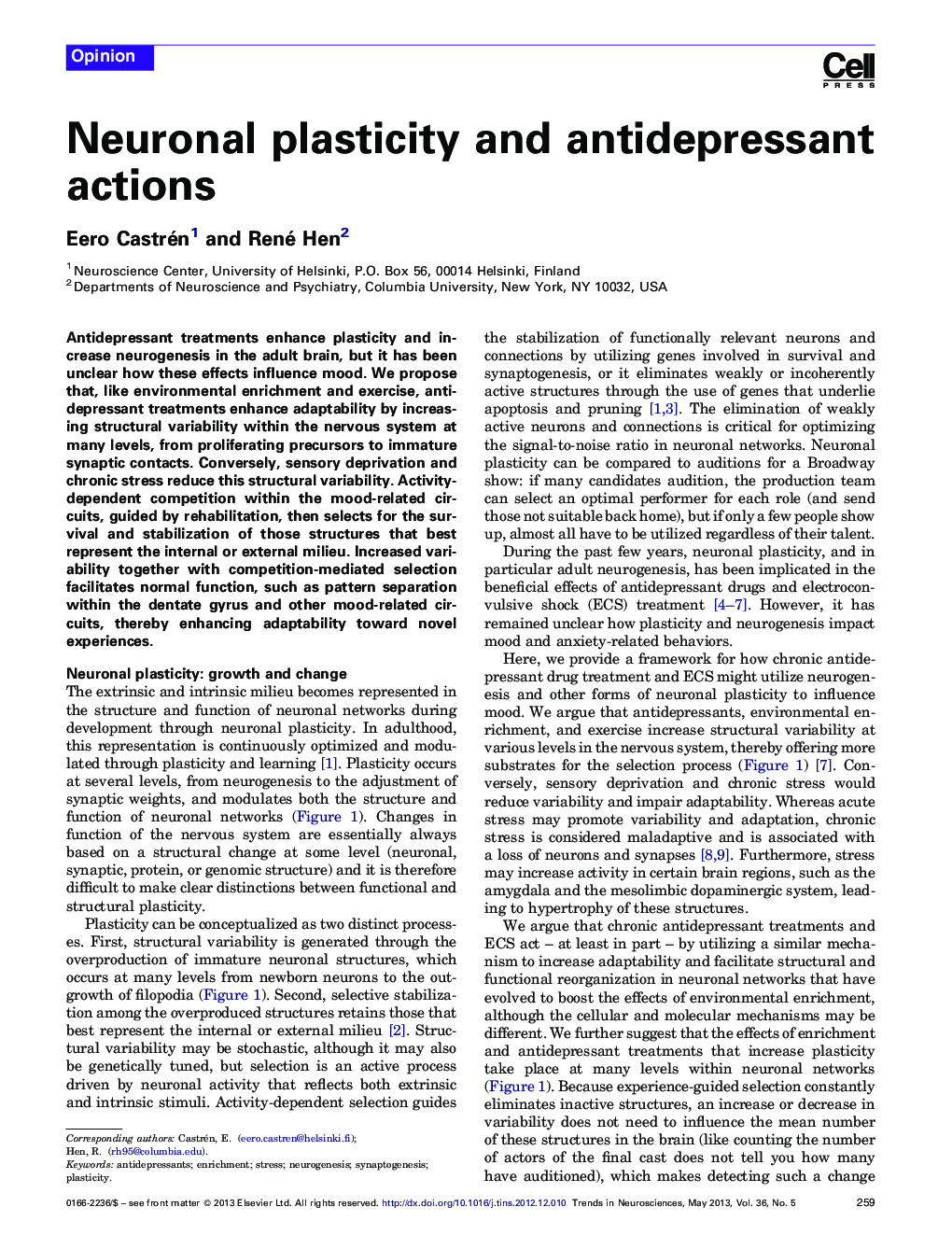| Article ID | Journal | Published Year | Pages | File Type |
|---|---|---|---|---|
| 4354317 | Trends in Neurosciences | 2013 | 9 Pages |
Antidepressant treatments enhance plasticity and increase neurogenesis in the adult brain, but it has been unclear how these effects influence mood. We propose that, like environmental enrichment and exercise, antidepressant treatments enhance adaptability by increasing structural variability within the nervous system at many levels, from proliferating precursors to immature synaptic contacts. Conversely, sensory deprivation and chronic stress reduce this structural variability. Activity-dependent competition within the mood-related circuits, guided by rehabilitation, then selects for the survival and stabilization of those structures that best represent the internal or external milieu. Increased variability together with competition-mediated selection facilitates normal function, such as pattern separation within the dentate gyrus and other mood-related circuits, thereby enhancing adaptability toward novel experiences.
